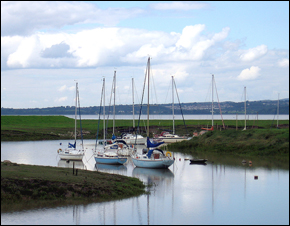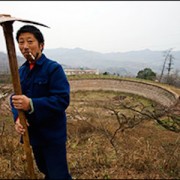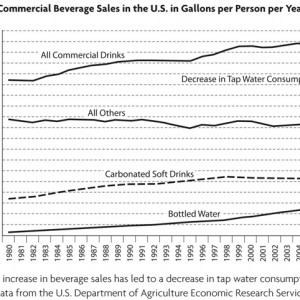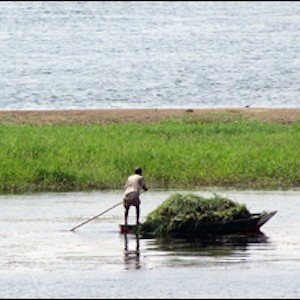Climate Change, Population Growth Threaten to Dry Up Britain’s Rivers
As Britain’s water supply faces fluctuation, an environmental group is calling for systemic reform and improved conservation.

Population growth and global warming could damage rivers across England and Wales, with one-third of the region’s river systems already in danger of running dry during hot summer months, according to local government and environmental groups.
This seasonal drying would be detrimental to the surrounding environment and decrease water supply for utilities that tap them.
The Environment Agency, a government bureau charged with environmental protection and regulation in England and Wales, estimates that river flows in some areas could be reduced by 80 percent by 2050 and warns that ecosystems in one-third of the river catchments are already in danger of drying out in a hot summer, the Daily Telegraph reports. Threatened waterways include the upper Wharfe in Yorkshire, known as the world’s most volatile and fastest rising river, and the Severn, Great Britain’s longest river at 354 kilometers (220 miles).
The World Wide Fund for Nature, formerly known as the World Wildlife Fund (WWF), is calling for an overhaul of British water regulations as well as public education efforts, including installing water meters to help people measure and reduce their water use, the Daily Telegraph reported. The WWF is also asking people in Britain to reduce their average daily water use of 148 liters (39 U.S. gallons) to 130 liters (34 gallons) by 2030, and for the government to update how they measure utilities’ usage of water.
Meanwhile, the environmental group has teamed up with Ofwat, which regulates water and sewerage providers in England and Wales, to reform the country’s more than 40-year-old water withdrawal licenses and to develop other conservation measures.
Sources: The Daily Telegraph, Worldwide Fund for Nature










It is often represented that this country and similar temperate countries share a global water problem. This is an over simplification. Of water ‘use’ in this country only a tiny fraction is consumptive. In the main we merely ride on the back of the water cycle, so to speak, as water makes its way to the sea. We borrow a small fraction of run-off and then put it back in circulation. Other parts of the world often have much more serious problems. Long term predictions of flow in specific rivers should be noted but treated with caution. If the worst anxieties are realised we will need more storage of winter flows. Our resources can be expanded in this way if we treat it as a priority.But unfortunately this is not true of many other regions and this is a case where our frugality cannot help them.